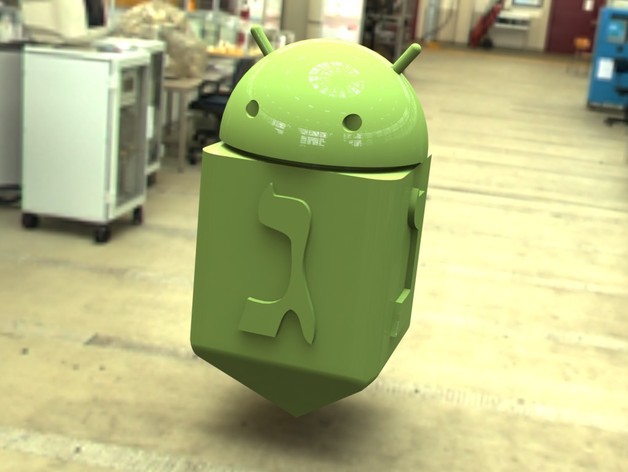When I was young, like most kids, I liked to tinker. From trying to fix a broken lamp by taking all of its parts out and putting it back together again to making a cabbage patch doll light up like a glow worm, it was generally encouraged or at least tolerated at home. It was also generally encouraged in school as well. However, as I got older the encouragement for tinkering in school seemed to quickly fade away. Play, experimentation, curiosity and learning by doing was replaced by memorization, standardization and boringazation (yep, I just coined a new term. Take that Mrs. White - my 6th grade English teacher!).
Why did growing up mean the end of learning by trying new things and getting my hands dirty? There are a host of reasons unimportant to this post (but important to know) and of which none validate the unnecessary stubbornness of remaining in the one-size-fits all classrooms that many of us grew up in and find our children sitting in today. Yet, there is hope.
Despite the notion of “learning by doing” being a siren blown for centuries on seemingly deaf ears, through the lower costs and rapid advances in technology, hands-on learning is becoming more mainstream than ever before. With more talk about Project-Based Learning, Gamification and, reason for my post, the Makers Movement, John Dewey, one of the original “learn by doing” educational gangsters would be proud.
The Makers Movement if you are not familiar with it follows along the lines of John Deweys idea of “learning by doing” or Piagetian idea that “to understand is to invent.” Dale Dougherty (click here for his Ted Talk on Makers), the founder of Make magazine writes in his essay titled The Maker Mindset (2013):
Yet the origin of the Maker Movement is found in something quite personal; what I might call “experimental play.” When I started Make magazine, I recognized that makers were enthusiasts who played with technology to learn about it. A new technology presented an invitation to play, and makers regard this kind of play as highly satisfying. Makers give it a try; they take things apart; and they try to do things that even the manufacturer did not think about.
I, like Dougherty as he mentions in his TED talk, think we are all born makers and we are often at risk for having that part of us extinguished in school. The truth is I never really stopped playing in school and often brought toys with me to class. However, my teachers did not seem to appreciate my wonder of how the sparks came out of my toy tank or what made my gameboy tick. I was often asked to put my toys away and listen. I did not want to listen, at least not for the lengthy period of time they were requiring of me. I wanted to learn and for me that meant investigating, exploring and creating. It did not mean sit and stare at a chalkboard for an hour and try to keep up with whatever the Charlie Brown “blah, blah, blah” teacher was saying. I am not suggesting there was and is no value in direct instruction. It is critical, but it must be strategic and personalized. Students today have more access to information than ever before giving the teacher more room to teach for the true goal of knowledge which is personally meaningful application. This is where a master educator can shine and give over the gift of education to their students. Thankfully we are seeing more and more of this happening in the field.
Just check out Innovation Academy, High Tech High, New Tech Network and Science Leadership Academy to name a few schools who used Project-Based Learning at this core with plenty of tinkering happening and check out this teachers “dive into the makers movement.”
Recently, I had the privilege of sitting in a session at the RAVSAK/PARDES Jewish Day School conference led by Sylvia Martinez, President of Constructing Modern Knowledge and co-author of Invent To Learn: Making, Tinkering, and Engineering in the Classroom. I just began reading it and for the first chapter alone it is worth the price of admission, but I am sure as I read more I would recommend it in its entirety. The session reinforced and opened up my mind to more of what is happening with the Makers Movement in the K-12 space. It also inspired me to sign up for the “Meet The Makers: Making A Case for Making in the Classroom” event I will be attending next week and hope to share more wonderful learning in this exciting area of education.
So, whether you call it a Makers lab, Fab Lab or just plain Project-Based Learning, learning by doing is alive and well in our schools and growing. There are many ways to think about how to increase real world application of knowledge taught in your schools. Integrating a Makers lab or Making in your classrooms is certainly a very exciting option. Below are many resources I collected about Making from the session I attended. Enjoy and go to school and play!
Looking for computers to tinker with?
Looking for something 3D to tinker with?
https://www.thingiverse.com/ (The above image is a design you can download here at Thingiverse)
Looking to tinker with cardboard?
Are you a girl who wants to tinker?
Looking just to tinker?
https://www.instructables.com/
Looking to read more about tinkering?
Invent To Learn: Making, Tinkering, and Engineering in the Classroom
Makers: The New Industrial Revolution
Originally posted at www.EJsCafe.com











Leave a reply